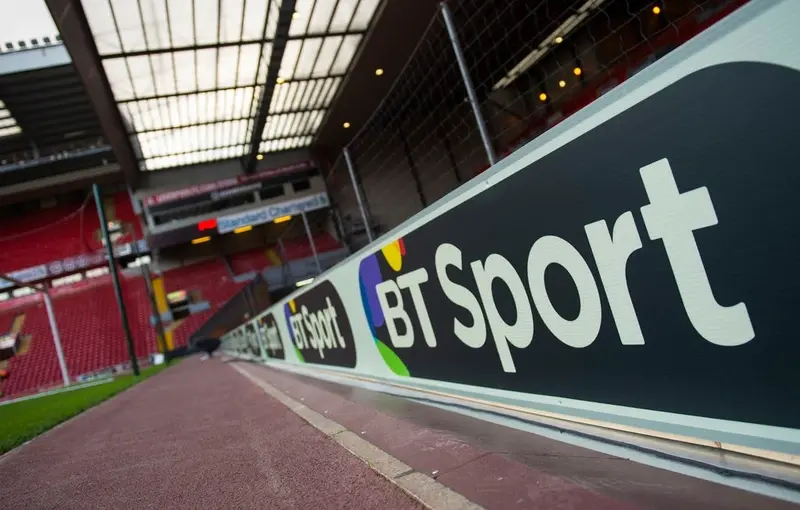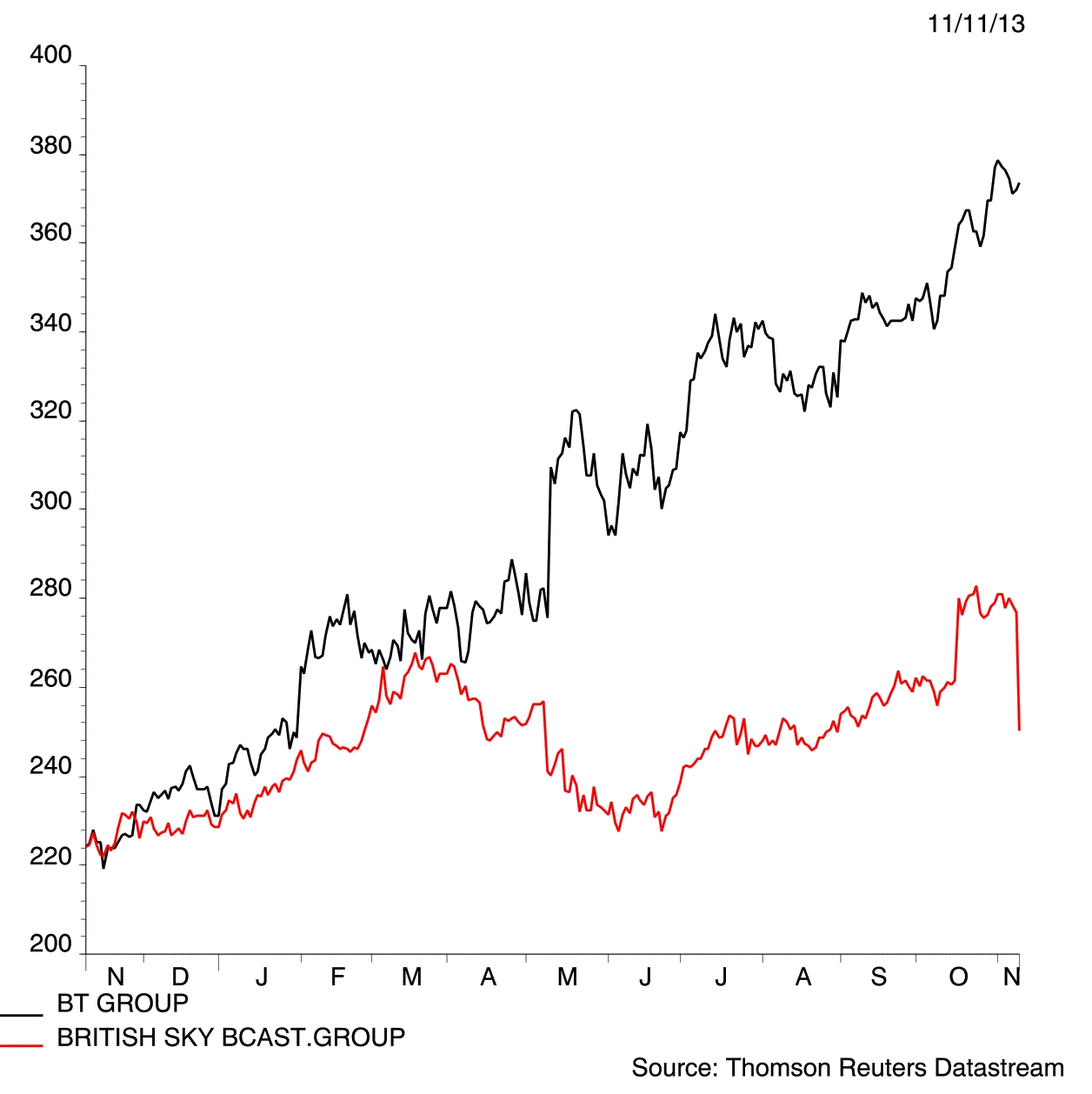
Paying well over double the price of the last sports content deal, BT (BT.A) must be mad, right? BT has trumped British Sky Broadcasting (BSY), its chief rival in sports broadcasting, by winning an exclusive £897 million, three-year TV rights deal with European governing body UEFA to broadcast 350 'live' Champions League and Europa League football matches from 2015.
BT has been struggling to stem the tide of contraction for years, chipping away at its cost base to pep profits up in the face of declining revenues as mobile steals talk-time away from old fashioned landlines. But cutting fat can only take you so far. What BT is attempting is to strike out on a bold new path to change its fate, and I salute management's bravery.
Yet it's paid the handsome sum of £299 million a year. Analysts at investment bank Berenberg says this is a 120% hike on the price last paid by Sky and ITV (ITV). At first glance, that looks a bit mad. But closer inspection shows that such a mix of free-to-air and pay-TV rights could be worth it.
Berenberg has crunched the numbers and reckons the £299 million a year cost could generate around £80 million a year of extra advertising and wholesale revenues (assuming it is wholesaled to Virgin Media). 'BT will be left holding arguably the most valuable football content in the UK and we calculate it generating a further £200 million per annum of subscription revenues,' says Berenberg. Factor in the added insurance against customer churn, suddenly the details of the deal begin to reveal a different story.
True, the European football alone may not drive significant new broadband customers, but added to the current 38 Premier League 'live' games it has, perhaps further ground can be broken.
Driving more of those broadband customers towards its own pay-TV package 'BTVision' is perhaps where BT stands to gain most, now seen a genuine alternative to pay-TV incumbents Sky and Virgin.
'As a serious TV player, coming from a lower pricing point, BT can take significant share,' argues Berenberg. 'With a new weapon in its arsenal, the risks of BT failing to take significant market share are lower.'
Perhaps most tellingly, Sky shares have crashed more than 10% on the news to 836.5p, while BT's stock has recovered from an early trade 2% dip to edge fractionally up, at 373.4p. That's a pretty clear demonstration of who the market sees as winning and losing from BT's broadcast victory.
Sky has had too strong a hand in the UK pay-TV market, thanks to its virtual monopoly on key sports coverage. Not any more. While only time will tell it if the sums really do add up for BT and its shareholders, today's announcement is a brave statement of intent. Good luck to them.





